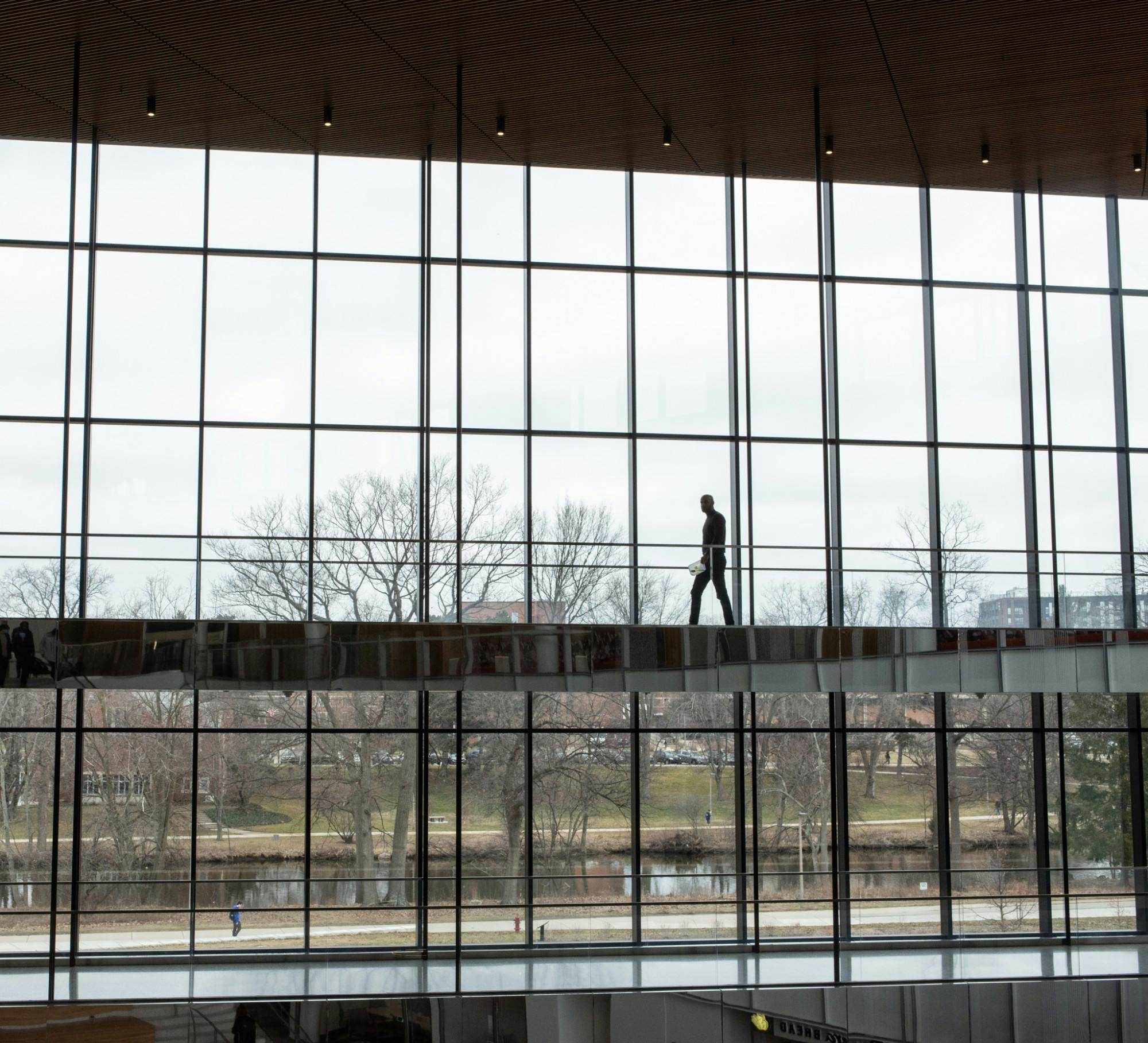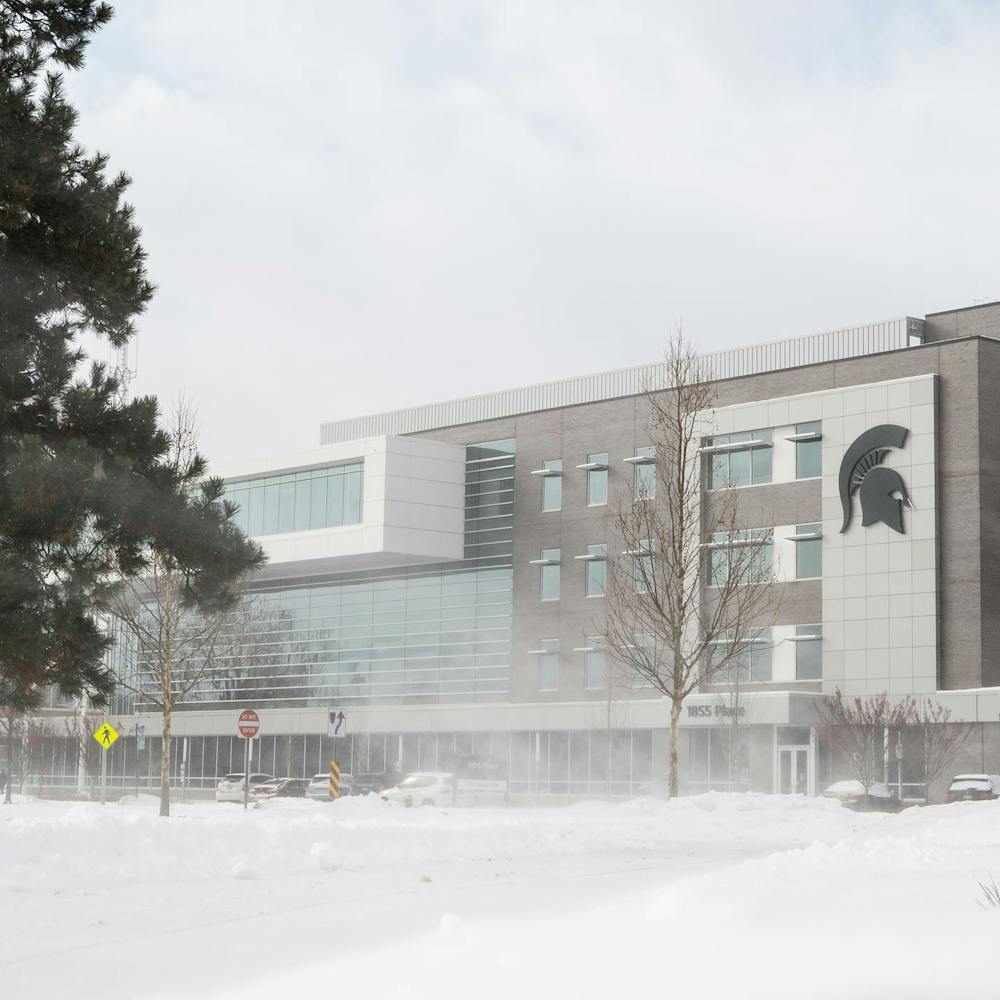Amid the global response to the COVID-19 pandemic and the cancelations of in-person classes across the country, international students at Michigan State face unique circumstances in addition to the same drastic changes domestic students are experiencing.
"Some of my friends, they were worried about the situation getting worse in the United States, so they would rather go back to China," media and information junior Guangyu Xu said. "Some of them are already back in China for their quarantine. They were also worried about the visa ... an international student is not allowed to leave the country for six months."
If a student leaves the U.S. for more than five months, they have to obtain a new “Certificate of Eligibility for Nonimmigrant Student Status" form and pay the I-901 Student and Exchange Visitor Information System fee again, according to the Department of Homeland Security.
During a webinar scheduled by MSU's College of Engineering following the university's announcement that classes were moving online and students were "strongly encouraged" to return to their permanent homes, Director of the Office of International Students and Scholars, or OISS, Krista McCallum Beatty spoke about how international students are being affected.
“They are trying to decide if they are going to stay on campus, or if they are going to depart campus and return to their home countries,” Beatty said. “One of the concerns we are trying to get addressed right now is with classes currently set to resume the week of April 20, there’s lots of concerns I’m hearing from international students about, ‘Okay, what if I can’t get back into the country.’”
The suspension of in-person classes has since been extended to the end of the semester, including finals week.
University spokesperson Dan Olsen said MSU has continued to support international students who are unable to leave campus.
"As President (Samuel L.) Stanley (Jr.) has reiterated before — and I will just echo his comments — we will continue to serve and accommodate our international Spartans who, for whatever reason, are unable to return home this summer due to the coronavirus outbreak," Olsen said. "We're doing that in a number of ways. They are continuing to be able to remain in their on-campus housing, they're able to have access to quality, healthy meals through our residential dining halls."
MSU is also offering international students an option to live on campus free of charge with the purchase of an unlimited summer dining plan, he said. However, they must be taking summer classes.
Food industry management junior Chittawan Boonsitanon, an international student from Thailand, said that while the transition to online classes has not been easy for him, the feeling of isolation from restrictions like Gov. Gretchen Whitmer's March 23 "Stay Home, Stay Safe" executive order is even more difficult to cope with.
“Another part of it is also that, as the state continues to tighten up regulations to prevent spreading, access to restaurants is being minimized,” Boonsitanon, who is also the director of technology for MSU's International Students Association, or ISA, said. “East Lansing is not a big town that you really have a lot of options, so now that restaurants are closing earlier, it makes it even more difficult. The whole idea that domestic students are going back home increases this kind of isolation and loneliness feeling on top of the struggles that some of them may have.”
International students — just like domestic students — are able to still connect with MSU's Counseling and Psychiatric Services, or CAPS, for support if they are feeling anxious, lonely or worried about the COVID-19 pandemic.
"We continue to welcome them here and provide the necessary resources for them to stay healthy and safe," Olsen said. "That also includes some of our mental health services. CAPS remains open in a kind of a tele-help way so that students who have been patients of CAPS before can return, or for those who are just feeling a heightened sense of isolation because they are meeting the local, state and federal health guidance of just staying put."
International students are encouraged to work with their advisors at OISS to discuss the factors that go into an international student’s decision to return home, Christopher Daniel, director of international health and safety at MSU International Studies and Programs, said in the webinar.
Some of those deciding factors include visa limitations, personal health and current U.S. travel bans.
“In the case where students want to go home and doing so will not prevent them from coming back to the U.S. when we’ve made it through this situation, then going back home is probably the right thing to do,” Daniel said. “But there are certain students — based on the situation at home or based on the type of visa they have — who might have a hard time returning to the U.S.”
While Boonsitanon agrees that international students should return home if possible, he said he thinks they should consider their personal health when making their decision.
"My advice would be, number one, is stay safe and protected." Boonsitanon said. "Number two, now that the whole crisis is panning out globally, while leaving or staying is a personal decision, one should always factor the risk in terms of accessing healthcare and all these important issues that would gradually impact an international student's experience."
Industrial mathematics graduate student Lei Ding, president of the MSU Chinese Students and Scholars Association, said the group is planning on giving out free masks to Chinese students at the university to allow them to feel more secure during the pandemic.
Ding said she is also worried about how the job market will look once she graduates. As efforts are being taken to reduce the spread of COVID-19, the economy is expected to be negatively impacted, which can make it difficult to find employment once students graduate.
Support student media!
Please consider donating to The State News and help fund the future of journalism.
"I'm currently graduating," Ding said. "So I do need to search for jobs and apply for jobs. The coronavirus might affect this a lot. I heard a lot of international students received an interview offer and, because of the coronavirus, they were canceled, so that is one of the concerns that we have for international students."
In addition to deciding whether to return home, international students might face xenophobia during this time, especially the Asian student community.
This is partially due to misconceptions around common Asian practices, such as wearing a mask during times of elevated sickness, Zhenshan Zhong, a counselor from CAPS said in the webinar.
“A student who wears a mask does not mean they carry a virus,” Zhong said. “Oftentimes, what I hear from students is they are covering the virus when they wear a mask, but they’re just wearing a mask for protection. It’s a very common practice back in Asia, wearing a mask due to the recent outbreak of the novel virus."
MSU has a strict anti-harassment policy and encourages students to report to the Office of Institutional Equity if they believe they are a victim of xenophobia.
"As we continue to monitor this outbreak, respond to it and adapt to MSU's response to it, such times really emphasize the importance of remembering our MSU community is one that values diversity, equity and inclusion," Olsen said. "There are members of our campus community who are very concerned about and are experiencing some xenophobia in some way, shape or form. This obviously does not align with our institutional values."
MSU has set up a 24-hour hotline on its misconduct website at (800) 763-0764 for students to report these incidents. For updates about MSU’s response to COVID-19, information can be found at msu.edu/coronavirus.
Discussion
Share and discuss “How COVID-19 affects Spartan international students” on social media.








